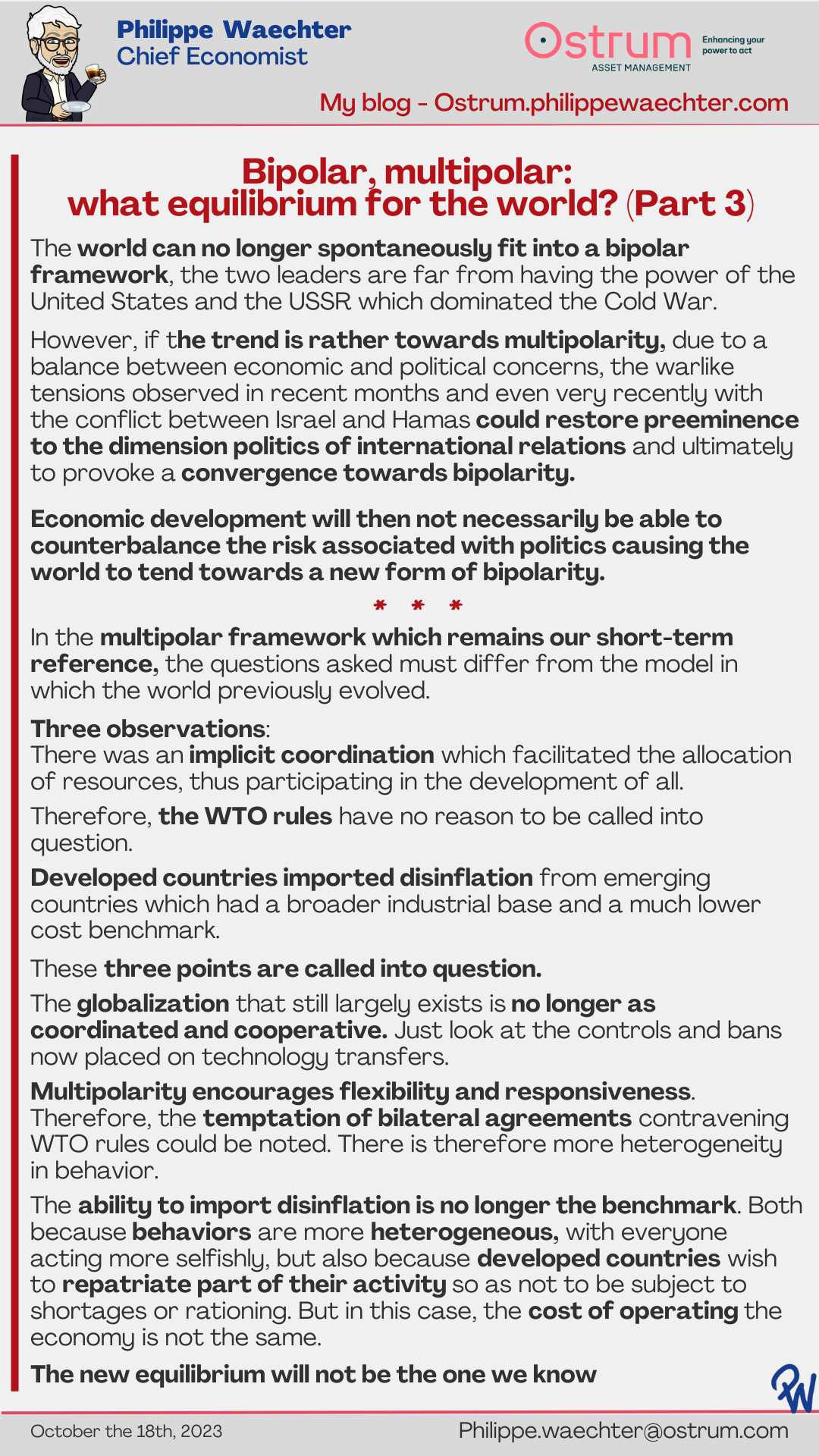Bipolar, multipolar: what equilibrium for the world? (Part 3)
The world can no longer spontaneously fit into a bipolar framework, the two leaders are far from having the power of the United States and the USSR which dominated the Cold War.
However, if the trend is rather towards multipolarity, due to a balance between economic and political concerns, the warlike tensions observed in recent months and even very recently with the conflict between Israel and Hamas could restore preeminence to the dimension politics of international relations and ultimately to provoke a convergence towards bipolarity.
Economic development will then not necessarily be able to counterbalance the risk associated with politics causing the world to tend towards a new form of bipolarity.
In the multipolar framework which remains our short-term reference, the questions asked must differ from the model in which the world previously evolved.
Three observations:
There was an implicit coordination which facilitated the allocation of resources, thus participating in the development of all.
Therefore, the WTO rules have no reason to be called into question.
Developed countries imported disinflation from emerging countries which had a broader industrial base and a much lower cost benchmark.
These three points are called into question.
The globalization that still largely exists is no longer as coordinated and cooperative. Just look at the controls and bans now placed on technology transfers.
Multipolarity encourages flexibility and responsiveness. Therefore, the temptation of bilateral agreements contravening WTO rules could be noted. There is therefore more heterogeneity in behavior.
The ability to import disinflation is no longer the benchmark. Both because behaviors are more heterogeneous, with everyone acting more selfishly, but also because developed countries wish to repatriate part of their activity so as not to be subject to shortages or rationing. But in this case, the cost of operating the economy is not the same.
The new equilibrium will not be the one we know
______________________________________
Philippe Waechter is chief economist at Ostrum AM in Paris





